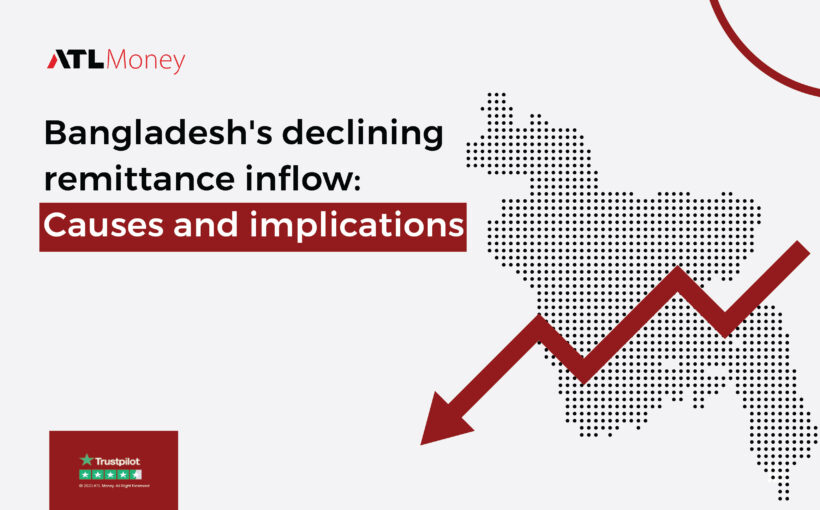In recent years, despite unfavorable economic indicators in Bangladesh, the country’s remittance inflow has managed to remain relatively strong. Bangladesh has long relied on remittances as a vital source of income, driving economic growth and supporting countless households.
However, in recent times, there has been growing concern over the declining remittance inflow, as Bangladesh Bank recently reported a significant decline of 21.57% in remittances for August, the lowest in six months. In comparison to August of the previous year, when the country received nearly $2.04 billion in remittances through official channels, this August has experienced the lowest remittance inflow in the past four years.
In this blog post, we will delve into the reasons behind this decline in Bangladesh’s remittance inflow and shed light on its potential implications for the economy and its people.
Economic Downturn in Host Countries
Major host countries for Bangladeshi migrant workers, such as the Middle East, Malaysia, and Singapore, faced an economic downturn even before the pandemic struck. The decrease in job opportunities and layoffs affected the earnings of Bangladeshi workers abroad, leading to a decline in remittance inflows to Bangladesh.
Fluctuating Exchange Rates
According to Zahid Hussain, former lead economist at the World Bank, remittances are not increasing since the dollar rate isn’t market-based.
Exchange rates play a significant role in remittance inflows. When the exchange rate is less favorable, migrant workers may delay sending money or choose to send smaller amounts, ultimately affecting the overall remittance inflow. Furthermore, increased competition among remittance service providers may also impact the exchange rates offered.
Changing Migration Patterns
Over time, the preferences and choices of overseas employment destinations have gradually shifted among Bangladeshi workers. In search of better wages, working conditions, and skill development prospects, many workers are now considering alternative countries. These changing migration patterns away from traditional destinations can also contribute to the decline in remittance inflows.
Implications of Declining Remittance Inflow
The declining remittance inflow poses various implications for Bangladesh’s economy and its people. It can negatively affect the foreign exchange reserves, balance of payments, and overall economic stability. Furthermore, many households heavily rely on remittances for their income, and a decrease can lead to reduced consumption and impact crucial areas such as education and healthcare.
Addressing the Decline
To counter the decline in remittance inflow, Bangladesh needs to implement strategic measures. This may include diversifying the economy, attracting foreign investment, creating more employment opportunities domestically, and strengthening the overall business environment. Additionally, ensuring a supportive policy framework and addressing the challenges faced by migrant workers can play a crucial role in revitalizing the remittance inflow.
The decline in Bangladesh’s remittance inflow calls for a comprehensive understanding of the underlying causes and potential implications. As the country navigates through these challenges, it is crucial to adopt measures that promote economic stability, empower the people, and create an environment conducive to sustainable growth.
ATLMoney stands committed to supporting individuals and their families with efficient, secure, and reliable remittance services, contributing to the well-being and progress of Bangladesh.
